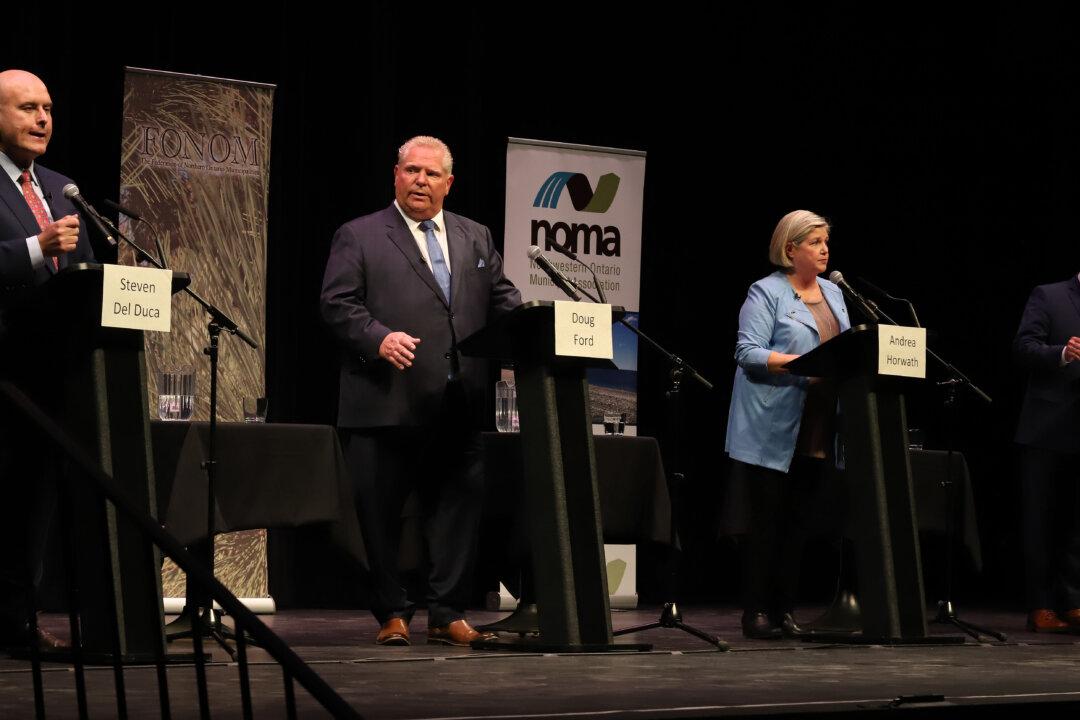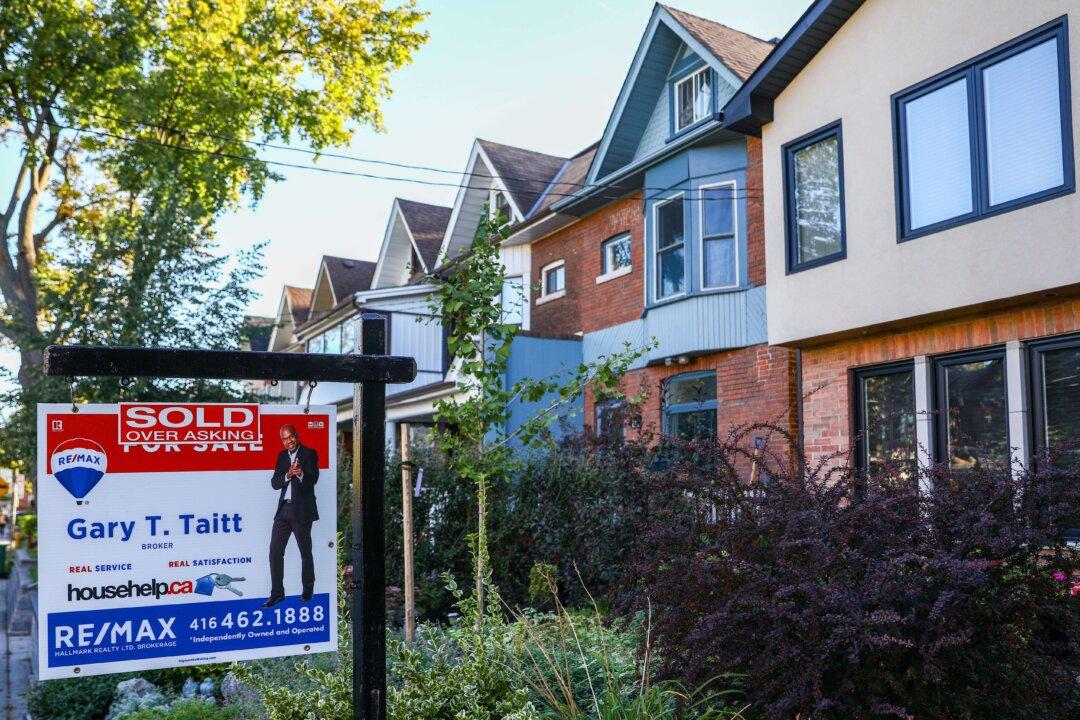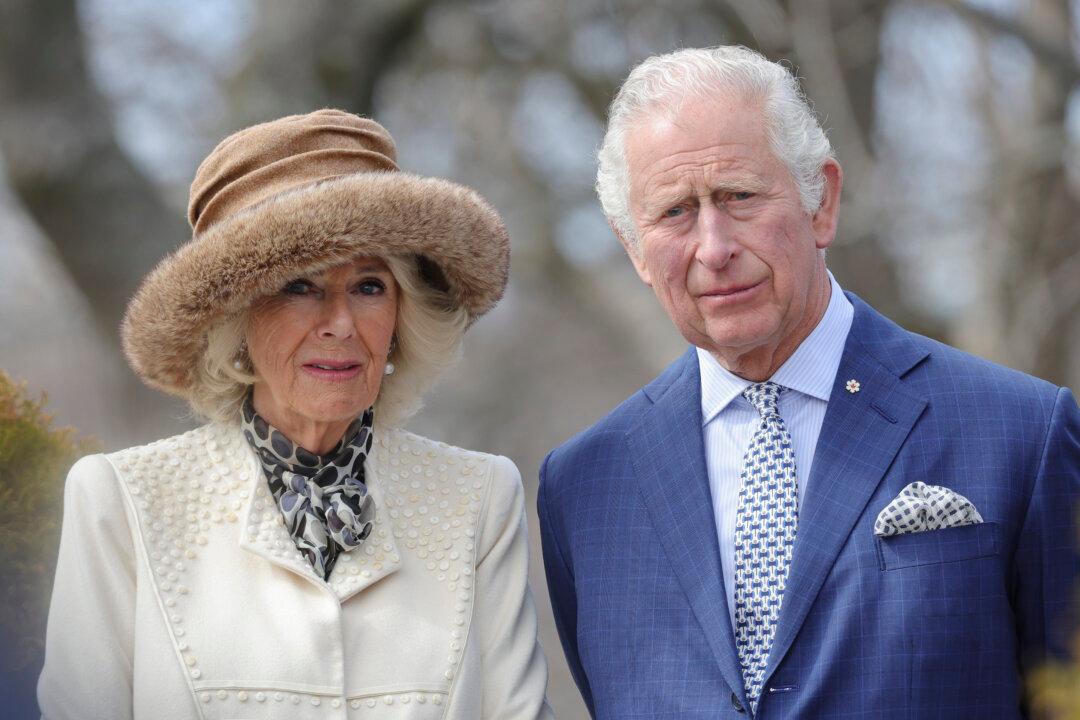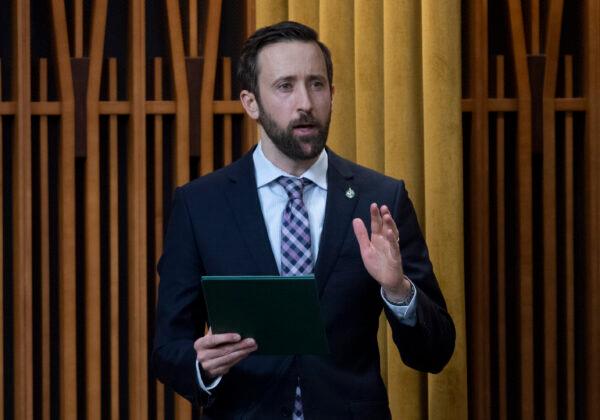Ontario’s party leaders faced off for the first time in a debate in North Bay, Ontario, on May 10. The debate focused on issues in Northern Ontario, with each leader presenting how their respective plans would benefit one of the regions whose economy had been hit particularly hard during the COVID-19 pandemic.
In his opening statement, Liberal leader Steven Del Duca, who opened the debate, set the tone by emphasizing bringing “true progress” to Ontario and “economic dignity to workers and their families and for small businesses.”





